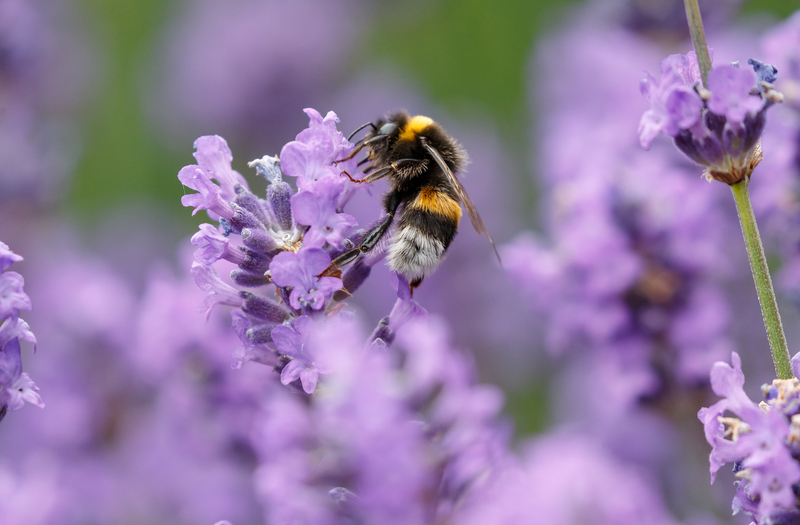Transform Your Scraps into Nutrient-Rich Soil
Posted on 09/06/2025
Transform Your Scraps into Nutrient-Rich Soil: A Complete Guide to Home Composting
Unleash the hidden value in your kitchen and yard waste! Transforming scraps into nutrient-rich soil is not only an environmentally friendly initiative but also a fantastic way to create free, organic fertilizer for your garden. In this comprehensive guide, you'll discover how simple and rewarding it is to turn everyday waste into a powerhouse amendment for your soil. By mastering composting at home, you'll nourish your plants, reduce landfill waste, and contribute to a sustainable planet--all from your own backyard.
Why Should You Convert Kitchen Scraps into Nutrient-Rich Soil?
Before diving into the 'how,' let's explore the 'why.' Composting and recycling organic materials like vegetable peels, coffee grounds, and yard clippings turns what would be waste into black gold for your garden.
The Environmental Benefits
- Reduces landfill waste: Food and yard waste typically make up more than 30% of what we throw away. Composting diverts this from the landfill.
- Decreases methane emissions: Organic waste in landfills produces methane, a potent greenhouse gas. Composting prevents this by turning waste into valuable soil instead.
- Conserves resources: It saves money on garbage disposal and lowers your household's carbon footprint.
The Advantages for Your Garden
- Enriches soil naturally: Homemade compost improves soil structure, water retention, and root growth.
- Promotes beneficial microorganisms: Nutrient-rich compost fosters healthy soil microbes that boost plant resilience and yield.
- Reduces need for chemical fertilizers: Compost is loaded with essential plant nutrients that are slowly released as plants need them.
The Cost Savings
- Free soil amendment: No need to buy bagged compost or commercial fertilizers--your kitchen scraps provide all the nutrition your plants need.
- Decreased garbage bills: Less trash means lower disposal costs in many areas.

Understanding the Basics: What is Composting?
Composting is a controlled decomposition process. Microorganisms break down organic matter from your home and garden--such as fruit peels, leaves, and coffee grounds--eventually producing dark, crumbly, earthy-smelling humus. This is the nutrient-dense soil that gardeners crave.
The Science Behind Composting
- Organic material: Food scraps, yard clippings, paper products, and more.
- Decomposers: Microbes, earthworms, and insects feed on your scraps and transform them into compost.
- Ideal conditions: Proper balance of carbon ("browns") and nitrogen ("greens"), moisture, air, and the right temperature accelerate the breakdown process.
What Can You Compost?
Creating nutrient-rich soil from scraps starts with knowing what materials are compostable and which should stay out of the pile. Here's a handy list to get started:
Kitchen Scraps ("Greens")
- Fruit peels and cores
- Vegetable trimmings
- Coffee grounds and filters
- Tea bags (make sure they are plastic-free)
- Eggshells (crushed for faster breakdown)
- Bread and grains (in moderate amounts)
Yard Waste ("Browns")
- Dried leaves
- Small branches and twigs
- Sawdust (from untreated wood)
- Shredded paper and cardboard
- Grass clippings (in thin layers)
- Straw and hay
Materials to Avoid
- Meat, fish, and dairy products (attract pests and create odor)
- Oily foods and fats
- Diseased plants
- Pet wastes
- Coal ash
- Glossy or colored paper
Step-by-Step: How to Turn Scraps into Fertile Soil
Choose Your Composting Method
There are several composting systems suitable for every space and lifestyle. Here are the most popular:
- Compost Bins: Ideal for small backyards. Contain the pile neatly and can be DIY or store-bought.
- Compost Piles: Simple, no-cost, and suitable for larger yards. Pile materials directly on the ground.
- Vermicomposting: Uses worms to break down scraps indoors or outdoors. Perfect for apartments or those with little outdoor space.
- Bokashi Buckets: Fermentation-based system for fast results, even in small kitchens.
Building Your Compost Pile or Bin
- Choose a site: Look for a spot with good drainage and partial shade. Easy access to your kitchen is a bonus!
- Start with a base: Lay down a few inches of coarse material (twigs, straw) to promote airflow.
- Add greens and browns: Alternate layers of moist, nitrogen-rich greens (kitchen scraps) with dry, carbon-rich browns (leaves, cardboard).
- Moisture and aeration: Your pile should be as damp as a wrung-out sponge. Mix or turn it every week or two for oxygen.
- Monitor and adjust: If the pile dries out, add water. If it smells bad, add more browns and turn it for air.
Maintaining Your Compost: Tips for Success
- Chop materials small: The smaller the pieces, the faster they break down.
- Mix regularly: Turning your compost provides oxygen for decomposers and speeds up the process.
- Monitor temperature: A hot pile (around 130-150?F) signifies active decomposition. If it cools, stir and add more greens.
- Watch for pests: Bury food scraps under browns to discourage rodents and insects.
Harvesting Your Black Gold: When is Compost Ready?
Your transformed nutrient-rich soil will be ready in anywhere from 2 to 6 months, depending on temperature, moisture, and the materials used. Finished compost will be dark, crumbly, and have an earthy scent. No recognizable scraps should be present.
Tip: Sift finished compost through a screen to remove any large, undecomposed bits. Return these to the pile for further breakdown.
Applying Compost: Feeding Your Garden with Homemade Nutrients
Once your compost is complete, it's time to put it to work! Here's how to incorporate your homemade, nutrient-rich soil amendment into your garden for maximum benefit:
- Mulch garden beds: Spread a 2-3 inch layer around new and established plants to conserve moisture and suppress weeds.
- Mix into soil: Work compost into planting holes or top-dress perennials to boost root health and flower production.
- Feed lawns: Use as a natural soil conditioner by sprinkling a thin layer over grass and watering in.
- Enrich potted plants: Blend with potting soil to give containers an extra nutrient boost.
Common Composting Mistakes and How to Avoid Them
Every composter encounters a few bumps along the way. Here are some frequent pitfalls and the best ways to solve them:
- Compost is too wet and smelly? Add more dry "browns" (like leaves, shredded paper) and turn the pile for airflow.
- Pile isn't breaking down? It might be too dry (add water) or lack nitrogen (add more kitchen "greens").
- Pest problems? Avoid adding meats, fats, and dairy. Always cover fresh food scraps with a layer of browns.
- Compost is slimy? This happens with too much green material--balance it with more carbon-rich brown items.
Advanced Tips: Supercharge Your Compost
Ready to take your nutrient-rich soil creation to the next level? Try these expert techniques:
- Add compost activators: Alfalfa meal, manure, or commercial starters can jumpstart microbial activity.
- Lawn aeration: Running a pitchfork or aerator through your pile increases airflow and accelerates decomposition.
- Layer with precision: Aim for two parts browns to one part greens for the perfect balance.
- Utilize worm castings: If you vermicompost, worm castings are an ultra-potent, slow-release amendment for your soil.

FAQs and Troubleshooting
Can I Compost in an Apartment?
Yes! With a small worm bin or a sealed Bokashi system, you can create nutrient-rich compost indoors without odor or mess.
How Long Does It Take for Scraps to Turn into Nutrient-Dense Soil?
Depending on your method and materials, anywhere from two months to a year. Chopping materials smaller and turning your pile regularly speeds up the process.
Is Compost Safe for All Plants?
Absolutely! Fully finished compost is gentle, pH-neutral, and packed with plant-friendly nutrients. Just ensure it's decomposed and doesn't contain any toxic or diseased materials.
Conclusion: Turning Waste into Wealth for Your Garden
Transforming your scraps into nutrient-rich soil is easier than you think-- and the results are profoundly rewarding. Whether you use a backyard bin, an indoor worm farm, or a compact Bokashi bucket, every household can play a part in recycling waste into one of nature's greatest gifts: healthy, vibrant soil.
Start today--save your scraps and watch your plants thrive like never before! Home composting reduces your household waste, cuts down on emissions, and gives you a continuous supply of organic, sustainable, nutrient-rich soil amendment. Your garden, your wallet, and our planet will thank you.
Ready to transform your kitchen scraps into a thriving garden? Start composting now and join the growing movement towards sustainable, regenerative gardening!
Latest Posts
The Secrets Behind Successful Container Gardening
Planting Seeds of Hope to Combat Climate Change
Creative Vertical Gardening for Urban Areas

